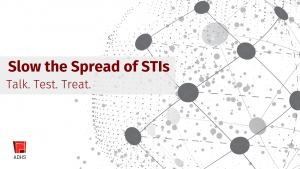 In just the past 22 years, the rate of sexually transmitted infections (STIs) in Arizona has more than tripled, with more than half of all cases affecting those 25 and younger. During STI Awareness Week, I’m calling attention to three critical steps:
In just the past 22 years, the rate of sexually transmitted infections (STIs) in Arizona has more than tripled, with more than half of all cases affecting those 25 and younger. During STI Awareness Week, I’m calling attention to three critical steps:
Talk. Test. Treat.
All three can help protect your health and your partner’s health. While STIs are more common than many might realize, they’re also preventable, treatable, and, in most cases, curable.
The Centers for Disease Control and Prevention (CDC) today released its 2020 Sexually Transmitted Disease Report. It shows Arizona as having the nation’s second-highest rate of congenital syphilis, which is passed from mother to child before birth. This is especially concerning because 11 out of Arizona’s 119 cases of congenital syphilis in 2020 were stillborn or died.
The increase in syphilis among babies mirrors an increase in adult syphilis. Both syphilis and gonorrhea increased in Arizona for the seventh consecutive year and reached all-time highs in 2020.
STIs have become widespread in part because many people don’t know they are infected or may not have symptoms. To remedy that, we encourage you to talk with your partner, get tested routinely for STIs, and talk with your doctor to get the appropriate treatment.
Preliminary data for 2021 shows there were 41,434 cases of chlamydia in Arizona, along with 18,346 cases of gonorrhea and 2,999 cases of syphilis. Chlamydia has the second-highest rate of infection (behind only COVID-19) among reportable conditions in Arizona. National infection rates also are increasing for all three.
HIV cases in Arizona decreased to 696 in 2020, down from 776 in 2019.
Reducing the incidence of sexually transmitted infections requires building awareness through education, ending stigma, promoting prevention, and ensuring access to timely testing and treatment. To protect babies, it’s especially important to disrupt the transmission of syphilis in persons of childbearing age. Pregnant individuals and their partners should be tested at the first prenatal visit, early in the third trimester (28-32 weeks), and at delivery.
ADHS is committed to developing innovative approaches to address health disparities and creating lasting change in Arizona when it comes to sexually transmitted infections.
Planning efforts have begun to create a statewide integrated plan to address STIs, HIV, and hepatitis C by addressing the common causes and factors. Leveraging Arizona’s healthcare workforce, technology, and available services can create a strong, integrated system that will build on the existing HIV Integrated Plan and improve health for all Arizonans.
To learn more about sexually transmitted infections and ways to protect yourself and others, please visit azdhs.gov/STI and HIVAZ.org.










